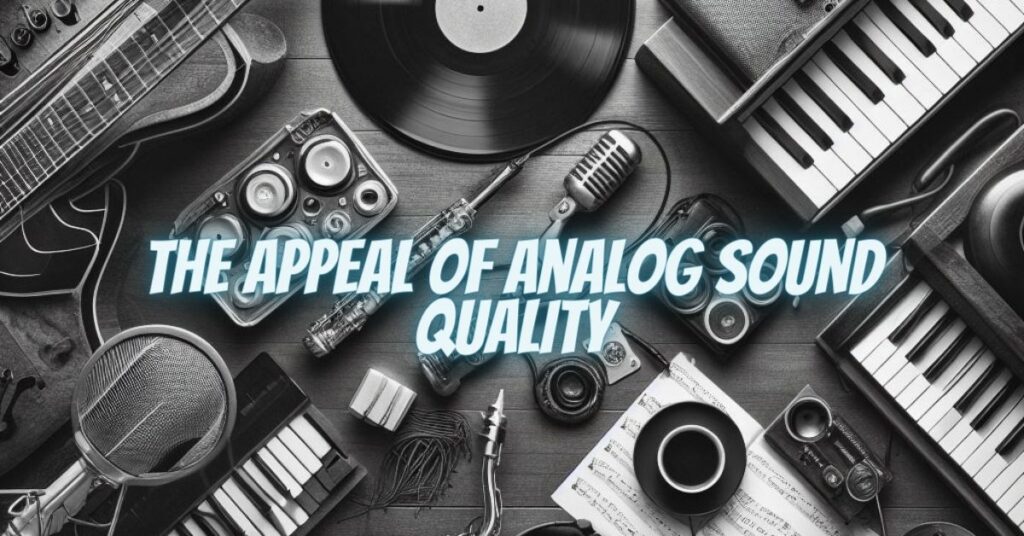In a world dominated by digital technology, the allure of analog sound remains strong, drawing passionate enthusiasts and audiophiles alike. The debate over whether analog sound is superior to digital has been ongoing for decades, with both sides offering compelling arguments. In this article, we explore the reasons why many people believe analog sound is better and the unique qualities that make it so appealing.
- Warmth and Character
Analog sound is often described as warm and characterized by a certain richness and depth that digital sound is said to lack. This warmth is partly attributed to the harmonic distortion introduced by analog equipment, such as tube amplifiers and vinyl records. This distortion can be perceived as pleasant and adds a unique character to the audio.
- Natural Harmonics
Analog systems produce natural harmonics and overtones, which can enhance the audio experience. These harmonics can be heard in musical instruments, and some argue that analog technology better captures the nuances of live performances.
- Sonic Texture
Analog recordings and playback impart a distinct sonic texture to audio, creating an intimate and engaging listening experience. Many enthusiasts appreciate the “analog feel” and the imperfections that are inherent to analog sound.
- Non-Linearity
Analog systems are inherently non-linear, and this non-linearity can give rise to musicality. Some argue that analog equipment, such as turntables, tape machines, and tube amplifiers, imparts a musical quality to the sound that digital cannot replicate.
- Dynamic Range and Headroom
Analog systems are often praised for their impressive dynamic range and headroom, which allows for smooth handling of transients and a sense of spaciousness in audio. Some find that digital systems can sound harsh when handling peaks, while analog excels in this aspect.
- Tangible and Nostalgic Appeal
Analog formats, such as vinyl records and cassette tapes, offer a tangible and nostalgic connection to the past. Collecting, handling, and playing these formats can evoke a sense of nostalgia and appreciation for a bygone era.
- Noise and Imperfections
Analog technology introduces noise and imperfections that are sometimes perceived as desirable. The subtle hiss of a vinyl record, for example, can be nostalgic and comforting for those who grew up with analog media.
- Minimal Processing
Analog sound is often associated with minimal processing. Analog recordings are typically made with fewer edits and less post-production, preserving the raw, unadulterated character of the original performance.
- Unique Audio Equipment
The world of analog audio boasts an array of unique and aesthetically pleasing equipment, from tube amplifiers and reel-to-reel tape machines to vintage turntables. These iconic pieces of equipment are cherished for their craftsmanship and visual appeal.
- Personal Preference
Ultimately, the perception of sound quality is highly subjective. Personal preference plays a significant role in determining whether analog sound is better. Some people simply prefer the warm, organic, and character-rich qualities of analog audio.
The debate over whether analog sound is better than digital is far from settled, as it is largely a matter of personal preference and the specific context in which audio is enjoyed. While analog sound possesses unique qualities that many find appealing, digital technology has made remarkable strides in delivering high-fidelity sound and convenience.
The enduring appeal of analog sound is a testament to the rich history and unique qualities of vintage audio equipment and media. Ultimately, the choice between analog and digital is a matter of taste, and both have their place in the world of audio, catering to a wide range of enthusiasts and audiophiles.

